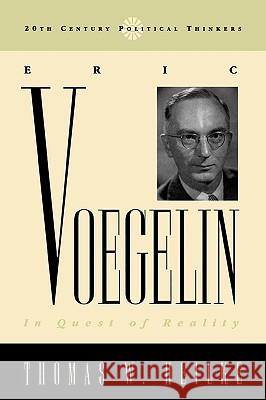Eric Voegelin : In Quest of Reality » książka
Eric Voegelin : In Quest of Reality
ISBN-13: 9780847694280 / Angielski / Miękka / 1999 / 204 str.
During his distinguished academic career, Eric Voegelin was described as the most important philosopher of history and consciousness since Toynbee; a political theorist of exceptional scope and erudition; a theologian with profound insights into the nature of religious experience. Similarly, Voegelin has been interpreted by his critics using virtually every ideological label available: fascist, communist, liberal, conservative, existentialist, fideist, socialist, reactionary, Jew, Catholic, and Protestant. Regardless of such efforts to characterize his writings using such neat categories, Voegelin has been celebrated by intellectuals of all stripes for the fresh new light he has cast on the modern predicament. Widely recognized political theorist Thomas Heilke contends that while some of these appellations may have elements of truth, none of these labels are ultimately capable of properly representing the essence of Voegelin's work. With startling new insights into the theoretical foundations of Voegelin's writings, Heilke's gripping analysis and compelling conclusions demonstrate how his subject was primarily a philosopher in quest of reality, and why no ideological category can grasp the core of such an intellectual journey. This book will be of interest to political theorists, theologians, philosophers, and intellectual historians.











